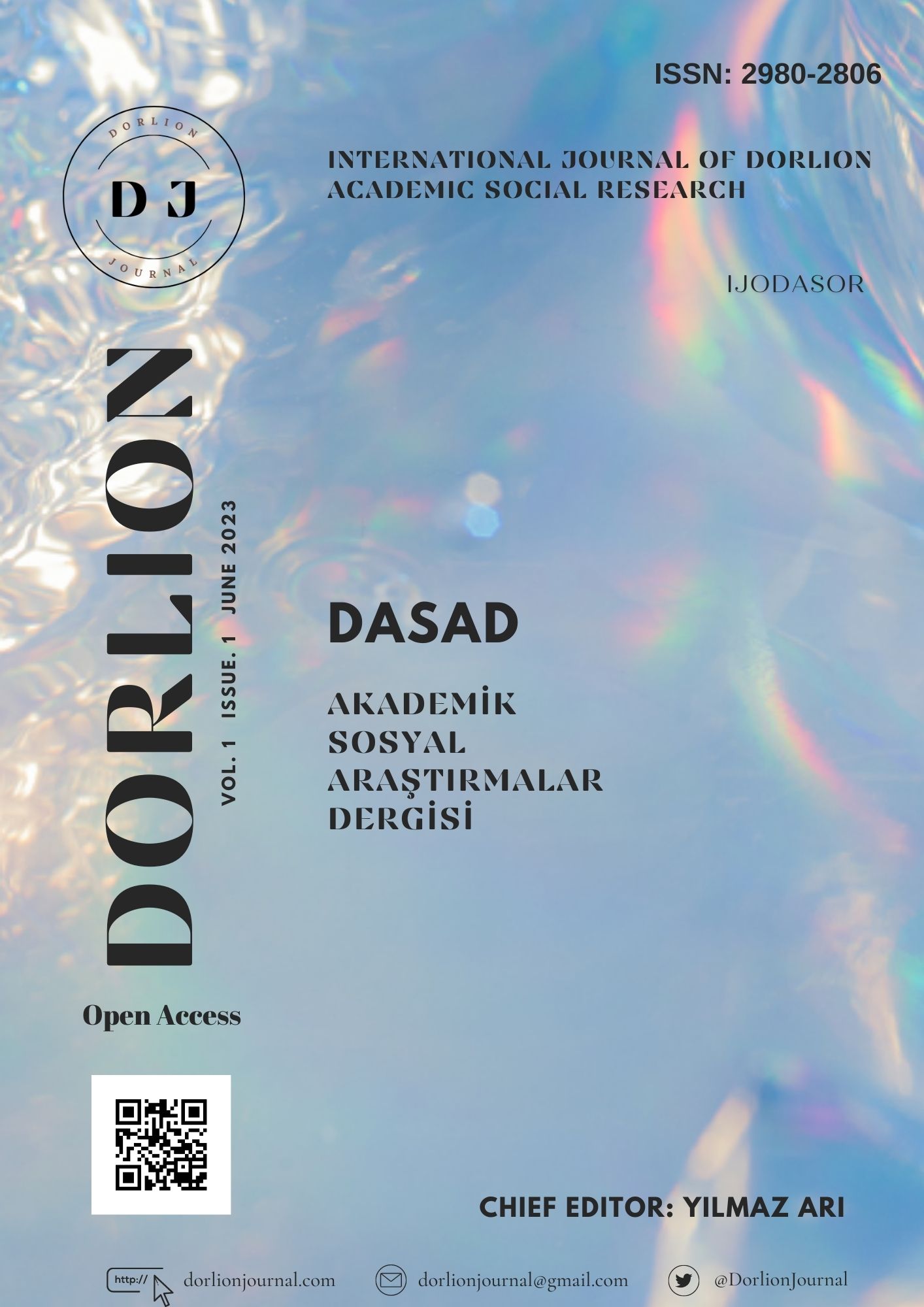Thesis Presentation and Evaluation
Comparison of Fârâbî And Ihvan-ı Safa And Âmirî’s Views: An Example Of Political Philosopy
DOI:
https://doi.org/10.5281/zenodo.8078453Keywords:
Justice, Morality, Happiness, Human, Political PhilosophyAbstract
Ebu Nasr Muhammed bin Muhammed el-Fârâbî, who has the title of “Muallim-i Sanî”, is one of the most important thinkers in Islamic philosophy. This philosopher, who is mentioned in many different fields, brought together Greek philosophy and Islamic teachings and created a unique political understanding by revealing a systematic political theory in Islamic philosophy for the first time. As can be seen from the relationship he established between the state and the universe, his understanding of politics is based on metaphysics. The group named İhvânu's-Safa and Hullânu'l Vefâ ve Ehlu'l Adl and Ebnâu'l Hamd, which carried out their activities in secret in the tenth century, organized meetings about sciences and the secrets of sciences and taught the science of soul, mind, etc., which concerns metaphysics. negotiated matters. Ikhwan-i Safa classified politics as we can find traces of it in Aristotle, by spreading it to many areas of human life. However, talking about prophetic politics and arguing that the real happiness is in the hereafter is the most basic feature that distinguishes him from Aristotle, which he followed. Ebu'l Hasan El-Âmirî, who lived in a period of political and social negativities in the Islamic world, followed the works of philosophers before him and commented on some works of Aristotle. While creating his own political philosophy, he also benefited from the ideas of ancient Iranian, Indian and Islamic thinkers on politics, together with the philosophers who lived in the Ancient and Hellenistic periods. In this study, the political philosophies of Fârâbî, İhvân-ı Safâ and Âmirî were revealed and then the views of the three thinkers were compared. In this study, topics such as politics, managerial types, managerial characteristics, and types of society were discussed and the common denominators and different views on which philosophers met were determined.
References
Özkeçeci Bulut, Büşra. Fârâbi, İhvân-ı Safâ ve Âmirî’nin Görüşlerinin Karşılaştırılması: Siyaset Felsefesi Örneği, Danışman: Prof. Dr. Kamil SARITAŞ, Yayımlanmamış Yüksek Lisans Tezi. Eskişehir: Eskişehir Osmangazi Üniversitesi Sosyal Bilimler Enstitüsü, 2022.

Downloads
Published
How to Cite
Issue
Section
License
Copyright (c) 2023 Kader Okcu

This work is licensed under a Creative Commons Attribution-NonCommercial 4.0 International License.




